
In Chapter 6 of Language In Though And Action by S.I Hayakawa, I learned what were the real purpose of ceremonies and rituals and how they function in our society.
Ceremony: the formal activities conducted on some solemn or important public or state occasion.
Ritual: an established or prescribed procedure for a religious rite.
Even though there is a real difference between the two terms, my class will use them interchangeably. The reason why people across the world engage in some sort of ritual or ceremony is because they do the following:
1. Define Identity
2. Build A Community
3. Express Belief
4. Negotiate Power
5. Well being of both, the physical and spiritual, states of an individual and societies.
Everyone has participated in a ceremony and/or ritual. Any religious rites, like Baptism, and holidays, like Christmas and Thanksgiving, are all a crucial part of our society. Imagine the chaos of not having any activity of this kind. Our sense of belonging would be lost and we would be prevented to reach our self actualization.
Jose.
Today, I was given a secret weapon. No, it's not made of metal. No, it's not a gun. No, it does not have an extensional meaning. What is it? Maybe you have heard of it. It's called Positive Supposition. Positive Supposition mean stating statements of blame towards someone yet giving the accused a false sense receiving the benefit of the doubt . Yes, you read it right. You're accusing someone while avoiding a self-defensive reaction. It's a really manipulative to do and gives you a lot of power compare to someone who doesn't know what this is. Let's take a look at some example so you can get the sense of what I am talking about. Let's pretend we are investigators similar to the ones on the CSI shows.
Case 1: A mother finds his son has not clean his room. Frustrated and angry to his mess, she wants to yell at him as soon as he gets home from school. She is hesitant to do this, although, because she knows it will only start an argument since the son will try to defense himself from the accusation. After thinking some time she knows exactly what to do. When her son arrives from school, she decides to use positive supposition to tell his son she is angry at his messy room so she tells him "I'm so glad that today I get to relax from this stressful day. It's nice knowing every room in the house is clean."
Case 2: You are a high school teacher and find out the assignment you assigned last night was not completed by any of your students Without wanting to accuse the class of failure and creating a tense environment, you decide to use positive supposition to tell the class how disappointed you are in the student's lack of dedication so you say "Class, yesterday, I ran into an old friend from college and I bragged about the great dedication my students have in their work."
In both cases, the message was kept the same, the mother expected the room to be clean and the teacher expected her students to complete their homework, but was told in a non accusing way. The receivers of this message should understand the expectations expected and complete them since they now know they were expected. Using Positive Supposition is a great weapon to have clipped on your belt since it's a characteristics of all great leaders. Leaders should be approachable to their followers even when they fail at some tasks. They must find a way to make them complete their tasks with out putting them in a defensive position. All great leaders bring the best in each of their followers.
Thinking about the specific task a leader must complete, I found that in my life I didn't had as many leaders as I thought I had. I guess it's not so easy fulfilling these requirements. How many true leaders that hold these qualities are found in your life?
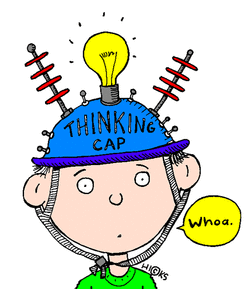 In Chapter Five, I was introduced to a family member of the Intentional Meaning family, Connotation. Connotation is the feeling or emotion that pops in your head when you hear a certain word.
Ex: The word Pig has a negative connotation since you think about how dirty a pig is thought to be therefore a negative reaction is intended.
Since words can have emotions attached to them, language can be used to express the speaker's feeling. If someone call's you a pig, you will not think that they like you very much even though they did not state it or said it in a report form. Report language informs us, Expressive language affects our emotional state or our feelings. There are a few factors that affect how expressive language can affect us. The tone of voice, the loudness or softness of your voice; and the rhythm used, the attention capturing repetition of auditory stimuli at fairly regular intervals; all are important affective elements in speech. The chapter also explained the definition of Denotation, which is the extensional meaning (what it actually is.)
Connotations have two categories:
1. Informative Connotations
which include both the definition and the denotation or a combination of the two.
- EX: Mermaids. You know what it is but you can't cant point at it in real life.
and can mean different things to different people.
- EX: the Bird Robin, people around the world are familiar with a different kind of robin so ho do they know which one are you talking about?
2. Affective Connotations
arouses a feeling and reveals how people actually feel.
In our Society, we also use Euphenisms. Euphenisms are the subtitution of a mild expression or word thought to be socially neglected or offensive called a Taboo like the word sex. We use the phrase "making love" instead of using "sexual intercourse." Euphenisms and Taboos change all the time and are basically circumlocutions that be used when you want to talk about this awkward topics.
Personally, I think it's jaw-dropping that language can reveal someone's true feelings to some one without even realizing it. To me, that's like letting someone inside your mind. That seems a little scary but I think that it would be a fun way to spend a day trying to figure out people's true feelings just by listening to what they say. That makes you powerful, but don't get carried away.
Jose.
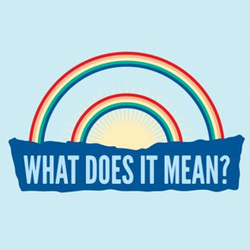 Reading Chapter 4 of Language in Thought And Action by S.I Hawakaya, I learned how humans give each other clues that help each other figure out the meanings of the words we say. First, I was explained the process of creating a dictionary. I always thought the dictionary's definition was something reliable and held authority but it really doesn't. You see words in dictionaries are defined by a bunch of historians using context clues. CONTEXT CLUES! There is no possible way of knowing the exact meaning of a word just by using context clues to define them so dictionaries are only meant to be like a guide tour during a hike. They only guide you to what the meaning of the word have been in the past.
Ever talked to a person that uses big words all the time that no one knows? Well, I have a big tool you can use to survive that situation. According to Hawayaka, Humans find the meaning of a word just by listening to the verbal conversation, this is known as using the Verbal Context. Let's see this example:
Ted: "Hey John?"
John: "Yeah."
Ted: "Can you pass me that shoopla?" (pointing at a book.)
John: (hands him the book)
In this conversation, you can see Ted used a never before seen word, "shoopla." John was forced to use the verbal context of the conversation to find what was it that Ted was asking for. John concluded he must of been asking for the book since he pointed at "that shoopla" and considered the specific situations of the conversation. Using the specific conditions of when a word is used and taking account the physical body language to find the meaning of a unknown word is known as using the Physical and Social Context. Therefore, we learn the meaning of words not from dictionaries but from our experiences and reasoning.
There are two kinds of meaning to a verbal expression:
The Extensional Meaning of a verbal expression is that to which it points to in the Enxtensional (Physical) World or the actual physical thing.
- In the example it was the pointing of Ted to the book.
The Intensional Meaning of a word or expression is that which is suggested inside one's head, or connoted belonging to the Intensional ( The-I-Think-This-Is World).
- In the example it was John reasoning Ted must be talking about a book, since Ted did not directly said that book with words.
Here's an easy way to remember the difference between the two. If you can put your hand over your mouth and point at whatever you are ask to find meaning of, the that word has an extensional meaning.
So, The "One Word, One Meaning" Fallacy is prooved wrong by the fact the meaning of a word is based on the totality of its contexts and contexts are never the same twice, hence, a word never has the same meaning twice.
Is not crazy to realize that when we speak we do this subconsciously? Then human mind is amazing.
Jose.

My Title is so dramatic and intense, when I wrote it, I could hear the scary sound effects! Here is a mystery for you. What do you call seven rules that you must NEVER break? Rules that are said to condemn you to hell? Rules that are govern only by Evil doers? Guessed it yet? Those unbreakable rules are called the Seven Deadly Sins... of Literature, of course. If you want to succeed in a AP English class or any college level class of English you must NEVER do the following:
1. Never Empty Write
2. Write Overused Clichés
3.Use Too MANY PLATITUDES.
4. Write Obvious Facts
5. Generalizing Too Much
6.Have Dogmatism In Any Form
7. USE BIG WORDS FOR NO REASON.
All of this rules are going to take some time getting used to. I sometimes forget some of them but who doesn't. Today, my class was sent an email with an article titled AP English Blather by Tina Blue. I was a little overwhelmed by it. The article talked about how freshmans in college are stunned when they receive their first F on an essay when most of them are used to getting A's simply because they don't know how to write properly. In High School, one is taught certain writing patterns; you must do this, do that, have 5 paragraphs; but in college teachers have a lot more flexibility and room to choose what type of writing they want you to complete. Now this is a scary thing if you are always used to 5 paragraphs essays and then suddenly your college teachers asks for a I-Search paper of 50 pages. A common problem Tina finds is the level of difficulty students have breaking those habits learned in High School. She gives the picture that English is broad and open to many views and opinions so a student must never conformed with one right answer but with ambiguity. English is a spectrum of possibilities.
What to take away?
I must try not to break any of the Seven Deadly Sins of Literature.
Jose.
I think it is so funny how we don't question things enough. If a Doctor or a Lawyer say their opinion we take it to heart like they have a certain set and stone certainty. Do we forget they are humans too that make mistakes too? Chapter three of Language In Thought and Action has brought the following terms to my To-Think-About List: I like to think of this as if I was an FBI agent, you question everything. Ask Why? How do you know? Where in the text does it say that? Oh, is that so? but you always have to remember to keep a serious mysterious poker face. It's no fun if you forget. I want to try this the next time I go visit the Doctors. Like Mrs.Fassbender, my English Teacher said, she always like to read an article ahead and catch people by surprise when they make judgements by saying "Really? Where in the text did you find that?" Of course, using positive supposition. Inferences are statements or creating guesses about something unknown from your observations or what you know. I know, that sounds a little weird but it's not really when you think about it. It's kind of like a hypothesis in a Science Lab, you make an educated guess as to what will happen in the experiment. You made a statement about what you didn't know, the outcome of the experiment, based on what you knew, your background information. Turns out humans do this a lot. We infer things everyday, when we are reading, talking, or simply listening and this could affect many things like your understanding and efficiency of communication. If you infer something wrong about something, you wont be able to understand it completely. If you infer something wrong during a conversation, the efficiency of communicating is harmed. Judgement is an expression of the speaker's approval or disapproval of the occurrences persons, or object the speaker is describing. Boy, is this something to be careful with. Language can be interpreted and communicated in many ways and that makes it easy for people to make inferences that lead to judgement. Saying someone lied, for example, would be a judgement. You don't know if the person knew the truth or not, so you inferred they did. Be careful since they can stop thought and knowledge. You don't want that. Slanting is picking certain facts that hide a judgement. Be careful not to mix this with reports. Even though they state facts, they only state facts that benefit their purpose. Politics contains a TON. Here's a game, try to find them all on the next debate.
P.S I rhymed.
Jose.
One of my dreams is to be able to explore the world. There are just so many places with many different interesting cultures and sites to see and gain new experiences at that the idea of forever staying in a city is absurd to me. I would never be satisfied but before I extend my wings and fly high with the birds, I have to learn how to learn how to use my wings. I guess you could say everyone everyday explores someplace new or learns something new. We are all explorers and that's an exciting thing to be. Whether you go to a new store at a mall or a different restaurant, you have a certain expectation that you have created from other sources like what people around have said. Let's say we are going out to dinner together to this new Parisian restaurant that just opened down town. Before going, we ask our friends if they have ever ate there before; if so, what they thought of the place; or if not, what they think the place will be like. This idea or expectation of an unknown place is what is called a Map.
Like an explorer needs a map before exploring some jungle or mountains, we as human need one too but there's a hidden trap in these maps just like Indiana Jones has them too while exploring. The trap is that not always a Map is accurate of the Territory, the unknown place, that it pictures. Just because our friends said the restaurant will be dirty because there are a few trashcans outside of it, might or might not be true, just like a map sold at the side of the highway might or might not accurately say all of the exits up to date. But how will we know if the map is reliable? That's easy. You experience it yourselves. You take a step forward and find out if those expectations made are true or not. In our date case, we would go to the restaurant regardless of what our friends said and find out for ourselves if the restaurant is to our liking.
These map and territories concepts can be applied to humans and the way we live other than fpr physical guidance. Alfred Korzybski was first to do this. He defined maps and territories as the following:
Maps- are reports and involve the Verbal Intensional World (The I-Think-This-Will-Be World.) that could or not be correct about territories.
Territories- are the actual experiences one encounters and involve the Extensional World (The What-It-Really-Is World.) that could disprove or prove a map.
The possible unreliability maps have make things really adventurous and add a lot more fun to our world. What purpose would visiting a place fulfill if everything that's there you could find it on a map?
P.S Indiana Jones is AWESOME.
Jose.
Most of us take for granted the superiority we have in the world. As humans, we are the best there is to be found on Earth. No species dares to compete but one cant help to wonder what exactly is it that sets us humans apart from the rest of animals? On a physical level, they are not that much different from us. We all have similarities like having a pumping heart, legs that walk, mouths that feed, and eyes that can see yet there's a little more to humans. What makes us the dominant species in the world? According to chapters one through three of the book "Language in Thought and Action" by S.I Hayakawa and Alan R. Hayakawa, I have concluded our ability to reason our spoken and recordable language have allowed us to stay on top. Humans are able to communicate unlike no other animal. We've come to create a complex language that allows us to speak of the future, the present, and the past to others not only that are in front of us but with people in the future about any subject. Sort of what I'm doing right now. Even though I'm not physically in front of you, I'm sharing my voice and ideas, my knowledge, and you are listening as if I were in front of you talking.
Our language has allowed us to discover many knowledge and experiences of people before us that was written down only to be built upon in all sorts of categories. We can rely on each other experiences and mentally judge or analyze them reasonably, so we don't have to experience everything on our own. Imagine how difficult it would be for you to solve a math problem without your math teacher giving you any tips himself gained from when he was in school? It is because of this comprehensible marks known as letters, that together make up words, and are connected to some meaning; we have been able to discover our past like how most of our world today is based off of the Greek Civilization or the fact the Greeks even existed! Future generations will be able to access this sort of past-discovered information and to keep the pooling of knowledge going because it was all written down for any one to read and know. No other organism have developed such an advance way of communicating with each other like we have and it is what I believe sets up apart from all other life on Earth. So the next time you read your mail, a letter, or a book embrace the delicate complexity of human nature.
Jose.
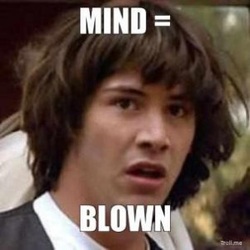 Just like Gravity, we, as humans, forget things that are so true and real. Gravity is over understood but it's not the only thing we are so used to being around. Have you ever wondered where the origins of our way of socializing began? How was it that we created words, sounds, and our overall language that we know today? During a reading of Language In Thought and Action by S.I Hayakawa, I was introduced the idea our society is always receiving knowledge without asking something in return from each individual in it. In simpler words, we receive but never have to give. At first, I was little confused. It's not like the world has given me a box wrapped in wrapping paper. So, it took a little brain power for me to understand what this meant. The meaning was we have all this knowledge available that you as an individual never contributed to.
MIND BLOWN.
I have never thought about this idea this way (but in a way I kind of knew this already) and now that it was brought to my attention the question is no longer:
What do humans get for nothing?
but,
What don't human get for nothing?
Seems like everything has been already discovered for you to only look for it. Examples? The knowledge around us.
Schools offer a lot of knowledge from math equations, like how to handle your money, to how to properly write a sentence, to achieved a job in life, but if you think about who was it that found this out? Someone, somewhere, and YOU did not help them in anyway yet you know about their discoveries. It's kind of humbling to know we have all these sources for absolutely nothing in return. In the Medical Fields, all of this great medicines that cure deadly diseases are available; in the field of Construction, ways to make a building sturdy and safe from enviromental conditions; in the Technological Field, how computers are built and help us handle our business everyday with the help of internet; this are all knowledge most of us never lifted a finger to achieve. Two words can summarize today's lesson...
MIND BLOWN.
Jose.
 The connotation of a snake is not the most angelic one. People tend to think it's slimy, and ugly. They view this animal as a symbol of evil but don't understand the role model it actually is to us humans. Yes, that right. Don't scowl at the idea, instead let me explain this concept. I know, at least once, you've met a person whom you thought to be a "snake." Someone most likely with the characteristics of cleverly deciding and patiently waiting for the right moment to attack in some form. Although this characteristics are not easy on the ears at first, I personally don't think it's such a bad thing to have them. I strongly believe the snake is worthy of being imitated by humans for multiple reasons. We need to be more clever like a snake. When we encounter problems, stress or ignorance are usually the drivers behind the wheel of the car that is our decision. Let's take those eradicable drivers and replace them with a snake, who will drive intelligently and cleverly. Meaning, we pick the most beneficial option available during a problem instead of the one we would like to choose. We make the smart investment instead of the pointless spending. We swallow our pride instead of insulting others when they insult us. Meaning, we decide to keep ourselves and our power. Patience, should also be aimed to be duplicated. Patience will tell us exactly when to extend our muscles and inject our fangs into our prey, whether to act or not. Patience is a snake's most appreciated sentinel that watches for possible slip ups like ruining your internship with that highly successful entrepreneur because you called him before he could call you to tell you your patience made you stand out from the crowd, or deciding to attend a University that you didn't want to only to find out your letter of acceptance to your number one choice University was received one day after it was too late to change. Our own success can only be reached if we wait to grab it at the right time; not too early, not to late. I believe everything under the sun is perfectly made and the snake with killer qualities is perfectly balanced, as we should be too. If we ever master patience and cleverness, we can not used them for evil intentions. Believe it or not, the snake does a good job following this rule. A snake does not go around killing people because they can or because they don't like someone, as humans would. A balance is needed. Imagine how powerful if we imitated the qualities of the snake. Tell me, what can't you can reach with cleverness, patience, and balance?
P.S. Snakes are dangerous. Be careful!
Jose.
|

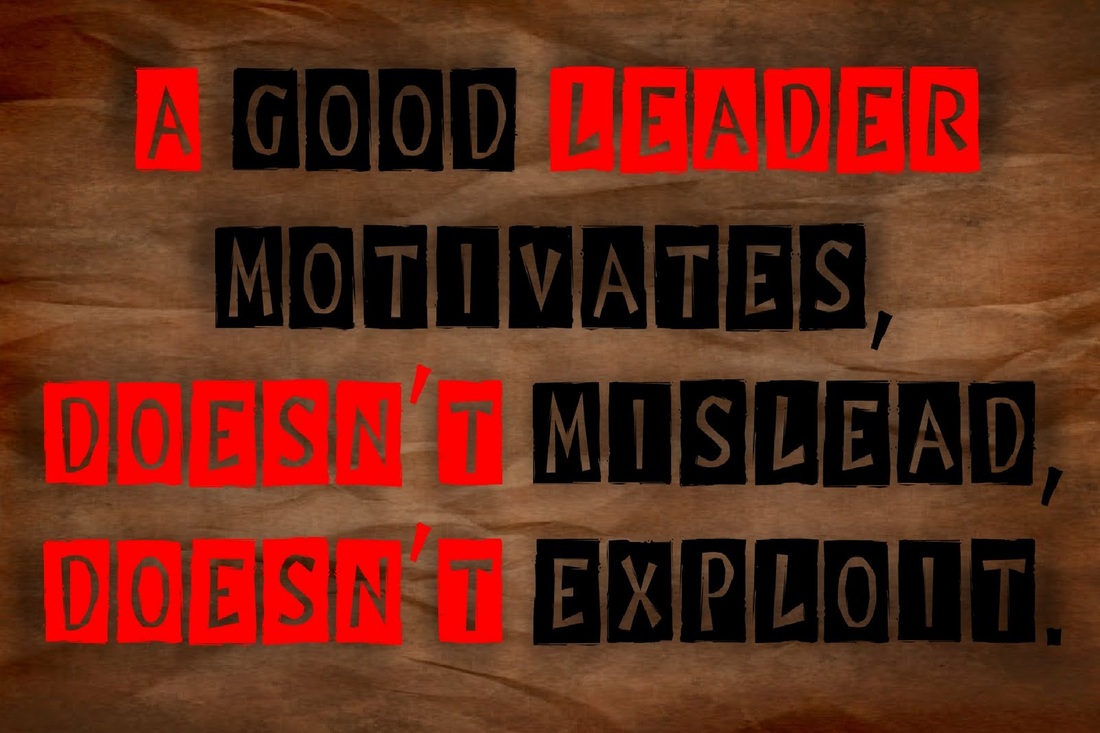



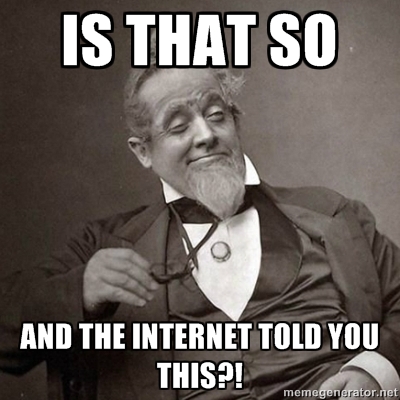
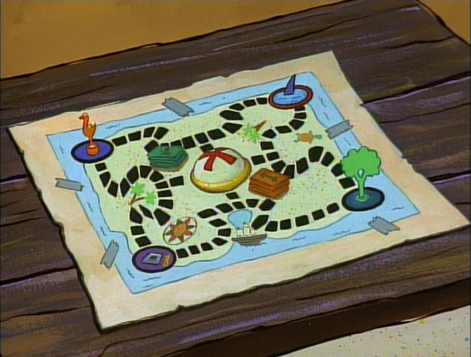
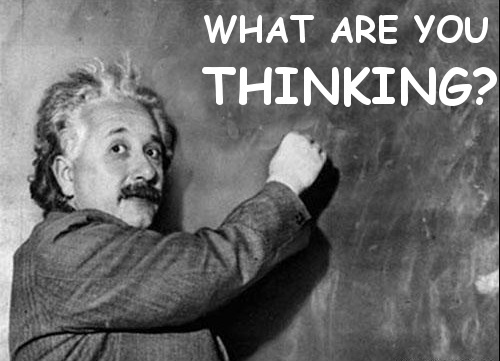


 RSS Feed
RSS Feed